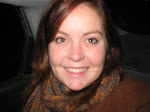As of May 2010 I will have officially served in Togo, West Africa as a Peace Corps volunteer for a total of 20 months. During this time, Datcha (my village), has become my home and the people of Datcha have become my friends and family. I live, eat, farm, work, laugh and cry with them and I’ve learned more from them and their lives than I ever expected. Because of this effective integration, I have successfully collaborated with my Togolese counterparts in a number of projects (notably a village-wide reforestation effort- 1,323 trees planted- and the construction of public composting latrines). To the same effect, I have had the opportunity to understand on a personal level the complex and devastating role poverty plays in Togo specifically in relation to sustainable development.
I have become a firm believer that education is the base for sustainable development. Without education we are left without the necessary mental capacities to improve our lives and our communities. For example, farmers who went to school or attended agricultural trainings are often better farmers because of the skills they learned (like how to calculate land superficies and crop output, or how to implement advanced agriculture techniques, etc). Nonetheless, to receive an education some type of educational infrastructure must exist. In Datcha there is insufficient educational infrastructure. Datcha and surrounding villages have a population of about 17,000. Currently serving this population is six elementary schools and one middle school. This means that for a student to continue their studies at high school they have to reside in an outside village (the closest is 12km from Datcha and its high school is over capacity). This discourages High School enrollment and drains Datcha of its educated and motivated youth. It also adversely affects young girls as boys are the first to be sent to school if the means are lacking.
Within Peace Corps there is an opportunity for all volunteers to apply for a grant with a Peace Corps Partnership Program (PCPP). A volunteer is selected based on their community’s need and initiative and the volunteer’s application. Once selected, it is upon the volunteer to solicit tax-deductible donations through the Peace Corps’ website. I have completed the application process and designed an action plan for the construction of a second middle school in Datcha which will, in accordance with Togolese regulations, ultimately transition to a High School. The community is furnishing the sand, gravel, and the manual labor for the project, adding up to about 30% of the proposed budget. In addition to the construction, the project includes a series of trainings held on the following subjects: the importance of girls’ education, the fight against sexual harassment in schools, how to manage a project budget, the importance of financial transparency in funded projects, and how to mobilize local resources to achieve community goals.
The total budget is $36,075,06 with the community contribution adding up to $8,351.38 leaving the PCPP request at $27,723.68. Unfortunately as I understand, the US economy is down, most of my friends are modestly employed or continuing their studies and with the catastrophe is Haiti peoples’ bank accounts are not over-flowing. But I also know the passion that I share with those close to me and I truly believe the project can be realized with your help. Please start thinking of church groups, associations, clubs, friends, family, teachers, and colleagues that you could contact to help me raise the amount needed. I have chosen 30 key individuals/couples/families that I have full confidence will help me in raising the money, you are one of those people. If each contact agrees to try to raise $1000, the project will be funded quickly and without much hassle. Because of poor internet and phone connections my networking abilities are severely limited so I count on you to help this project become reality.
My wise mother once told her children that no one can take away their education. What she meant was that an education is unlike material possessions in that it lasts forever and is invaluable. In Togo, where people are living on around a dollar a day, an education can mean a chance at a life out of poverty. I’ve always been given the opportunity and encouragement to receive a good education, and it is that education that has instilled in me a sense of service for those less fortunate. I too tell my Togolese friends no one can take away their education- the question now is how they will receive it if there is no school.
Here is the website for donations:
https://www.peacecorps.gov/index.cfm?shell=resources.donors.contribute.projDetail&projdesc=693-350
Also here is the website for photos of my work and village and of the construction site:
http://picasaweb.google.com/Laura.Groggel/Togo#
If you would like a copy of the full application and budget, let me know and I will email it to you.
Also let me know if you have any questions/concerns/comments.
In peace and hope,
Laura
Friday, April 23, 2010
Subscribe to:
Posts (Atom)


